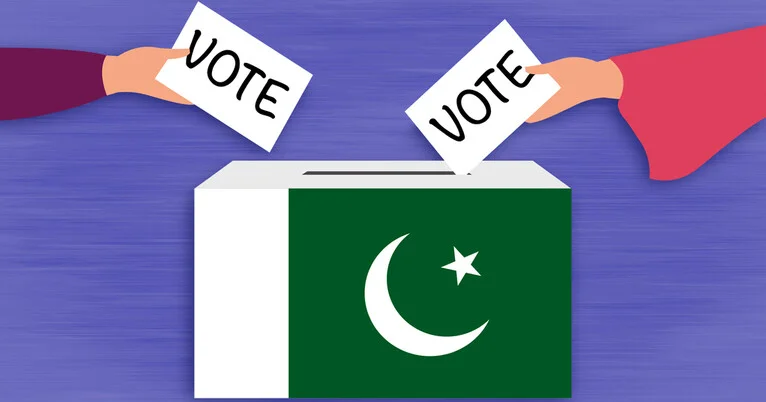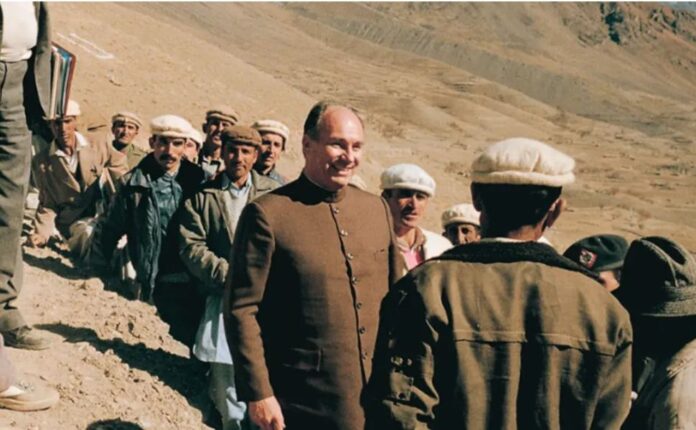The election took place. Just 48 hours ago, the entire nation was in a state of tension. The prevailing view was that the conduct of the elections was difficult due to heightened security concerns. Although elections could only be held in a few provinces, on February 8 the world witnessed voters turn up, cast their votes and decide their fate. This move left a lot to be desired. There was a prevailing fear of not holding elections, accusations of machinations and accusations of unequal conditions, especially towards the institutions and especially the establishment. So far, however, the results have shown that everything has been extremely clear and transparent. It is positive and encouraging that so far no political party has objected to the election results. Now that the public has made its decision, a new beginning must be made.
Yes, this is the time for a new beginning, one where there is neither an old Pakistan nor a new Pakistan, but rather an intention to manage the existing Pakistan and move it forward. The commitment should be to take this Pakistan forward. Whatever government is formed, especially in a situation where there are numerous challenges, the most important responsibility will be to unite the population of these 220 million. A major global crisis of image, hatred and insurgency has taken place in the past few years, when Pakistan has witnessed a lot. The rebellion even spread to internal conflicts, hatred because of different opinions, hatred because of the mention of someone’s name and this hatred escalated to violence. In households where disagreements occurred and good-natured jokes turned into serious conflicts, relationships were strained. Supporting another political party would lead to being labeled a traitor, and the result of sympathizing with one party would be to regard someone else as an enemy.
For any new government that comes in, the main challenge will be how to eliminate this hatred. How to bring everyone on one platform, how to move everyone from under the banner of their respective parties to the flag of one Pakistan. Among other challenges, this will undoubtedly be the biggest challenge.
At this point, tolerance within the community has decreased. In response to differing opinions, when there is no constructive response, discussions often degenerate into heated arguments. However, evidence-based argumentation is over. Politeness has disappeared and respect has disappeared. The most significant global problem is distrust of what is heard. For everyone, their leader is right and the others’ leaders are wrong and vice versa. Rarely does anyone bother to investigate whether what the opposing leader is saying is right or wrong. God gave everyone consciousness and intellect, but unfortunately people used it sparingly. Whoever forms the government should set an example by dealing with political opponents with an open heart, patience, tolerance and understanding to set a precedent for their followers to follow. The approach should be one of listening, understanding and explaining with patience and persistence.
It is said that when there are many problems, the most urgent and critical problem should be solved first and the rest can follow later. If priorities are not established, problems tend to persist because we are unable to solve the one that requires immediate attention. The same situation prevails in the country right now and there are countless problems surrounding it. In my opinion, the most fundamental problem affecting the nation is the state of disunity. There is a need for the incoming government to put the nation on the same page, engage with the adversaries to improve relations and discuss every aspect to address the issues comprehensively. As long as the nation remains divided, the persistent problems will continue.
This nation, especially its youth, has suffered greatly in recent years and it is unsustainable to continue to suffer such losses. Quaid-e-Azam envisioned unity before the creation of Pakistan and that is why people achieved Pakistan after the unification. Allama Iqbal asked whether anyone is Afghan, Baluchi, Sindhi, Punjabi, but are they also Muslims? This question remains relevant even today – we may be associated with PML-N, PTI, Jamaat-e-Islami, PPP, MQM, TLP or any other political party, but are we also Pakistani? How many Pakistani flags do we see at the rallies of each political party? This reflects the unfortunate state of division within this nation.
Until we break out of partisanship, we cannot become true Pakistanis, and this important responsibility will be borne by the incoming government. The country’s economy will improve, peace will prevail and prosperity will spread. But before all that, it’s time for a new beginning, a new way of thinking, spreading love and peace and moving forward together. It’s time to bury the old politics and welcome the new day. Whoever wins this election has a great responsibility not only to humble their opponents but also to discourage their supporters from engaging in anything that could further fan the flames of hatred. Sitting in positions of power and teaching lessons of love, compassion and peace. Formulate a policy that will permanently bury the politics of hatred and division. Believe me, if it does not happen this time, what has been going on will continue and the result for this nation of 220 million will be nothing but destruction.
Delaying the fight against the enemy within will only lead to internal wars and we will continue to fight among ourselves. So let us pray that this new government will bring a new hope, a new beginning – the beginning of love, brotherhood and peace. May it turn Pakistan into the Pakistan our founder envisioned. Amen.







